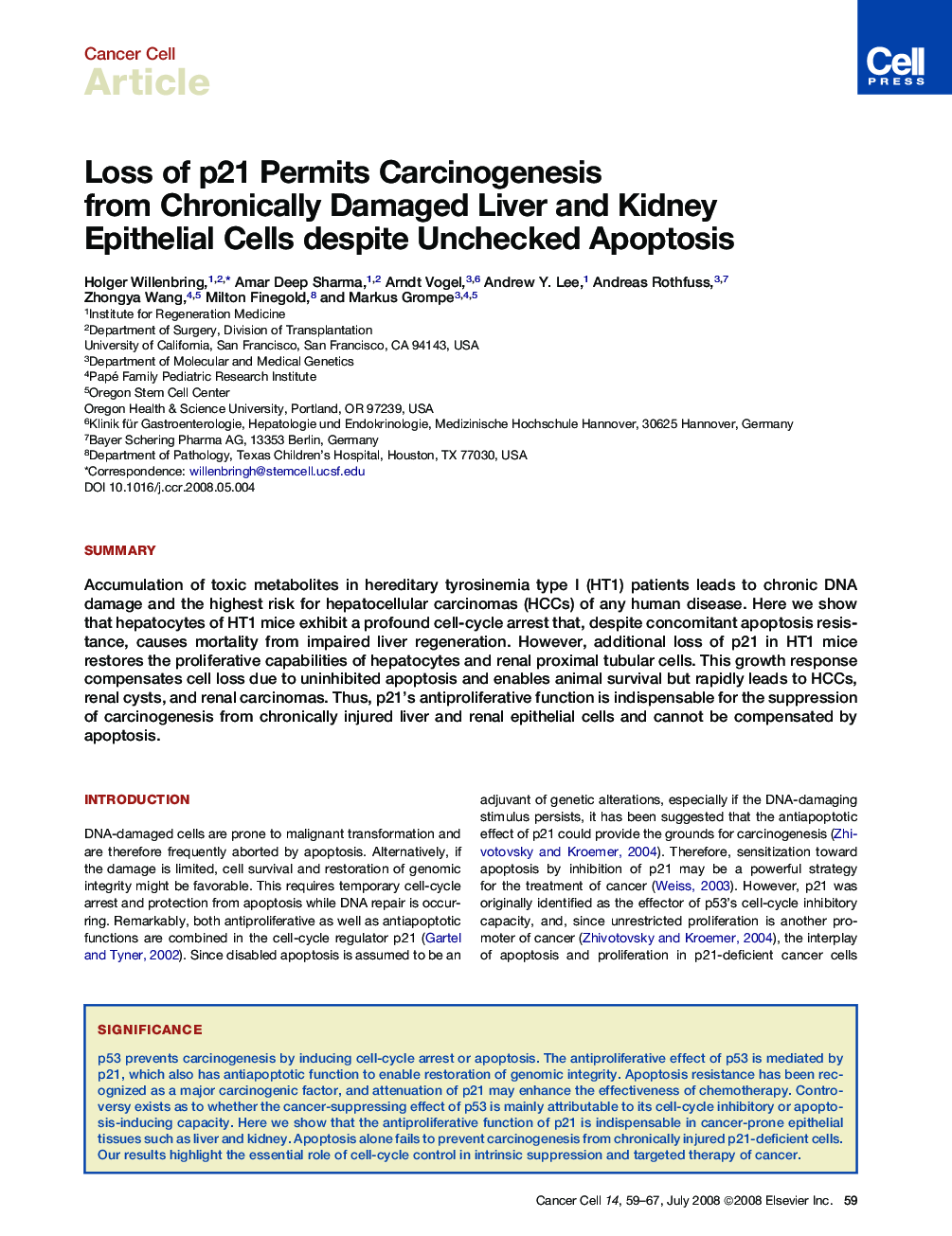| Article ID | Journal | Published Year | Pages | File Type |
|---|---|---|---|---|
| 2108407 | Cancer Cell | 2008 | 9 Pages |
SummaryAccumulation of toxic metabolites in hereditary tyrosinemia type I (HT1) patients leads to chronic DNA damage and the highest risk for hepatocellular carcinomas (HCCs) of any human disease. Here we show that hepatocytes of HT1 mice exhibit a profound cell-cycle arrest that, despite concomitant apoptosis resistance, causes mortality from impaired liver regeneration. However, additional loss of p21 in HT1 mice restores the proliferative capabilities of hepatocytes and renal proximal tubular cells. This growth response compensates cell loss due to uninhibited apoptosis and enables animal survival but rapidly leads to HCCs, renal cysts, and renal carcinomas. Thus, p21's antiproliferative function is indispensable for the suppression of carcinogenesis from chronically injured liver and renal epithelial cells and cannot be compensated by apoptosis.
